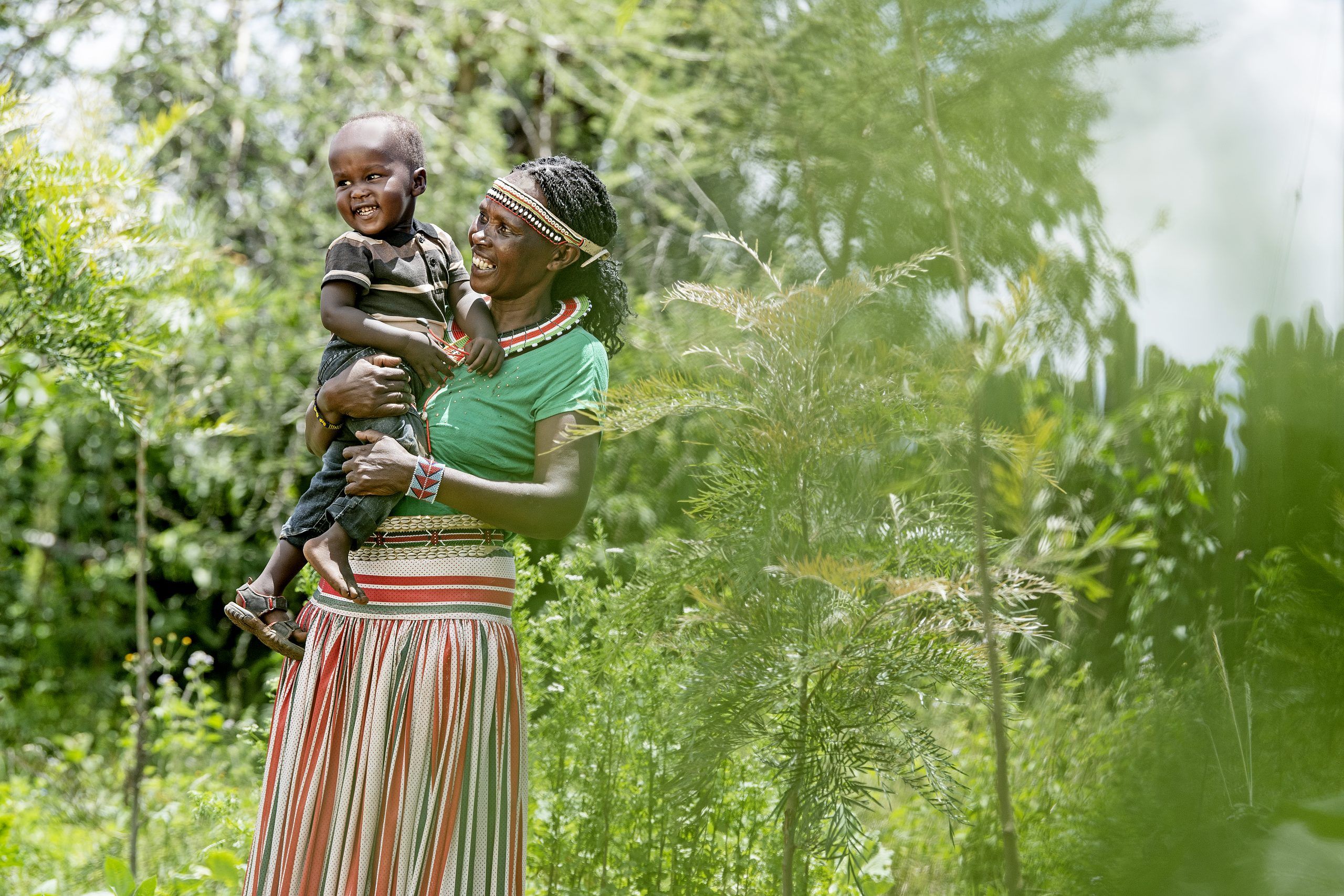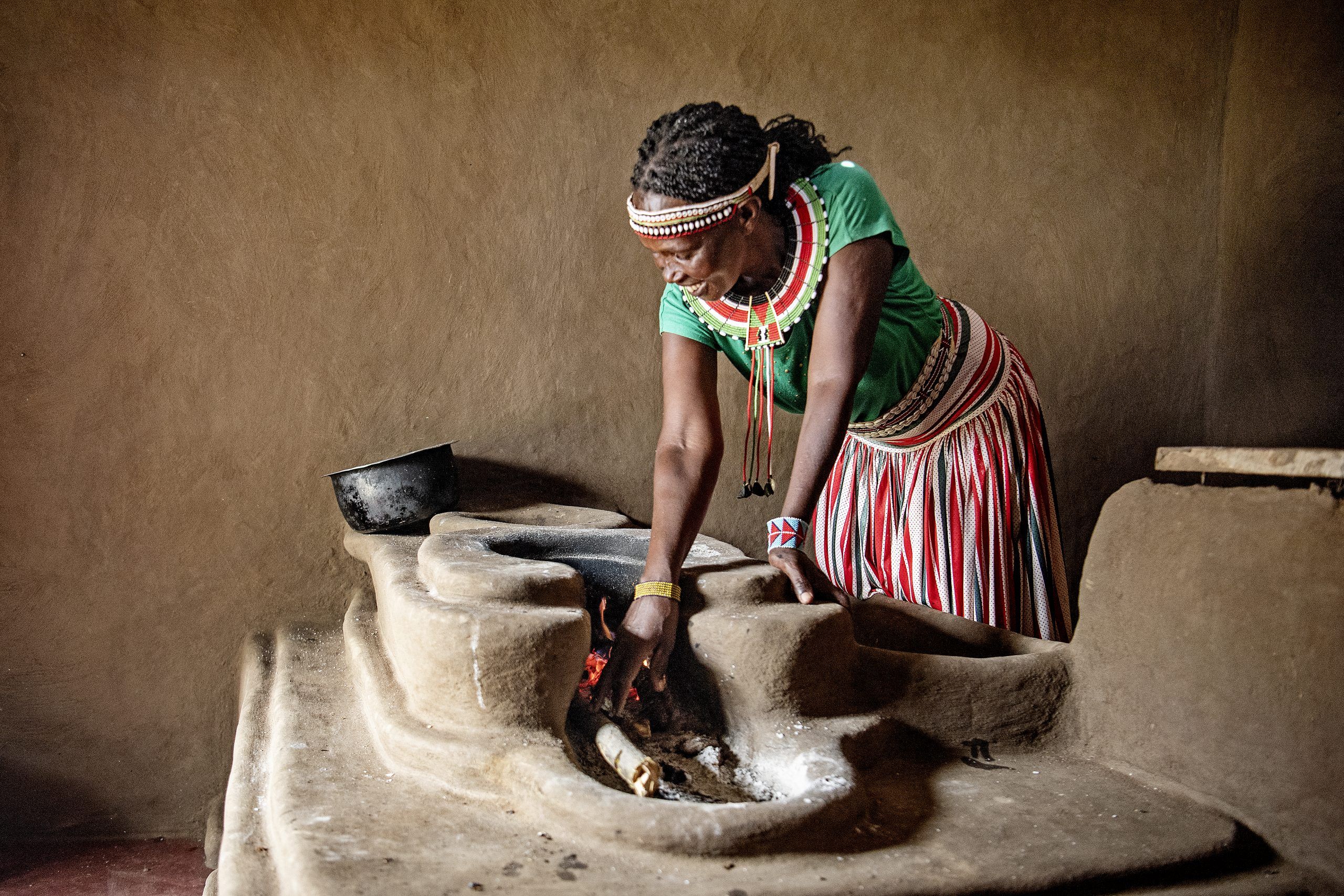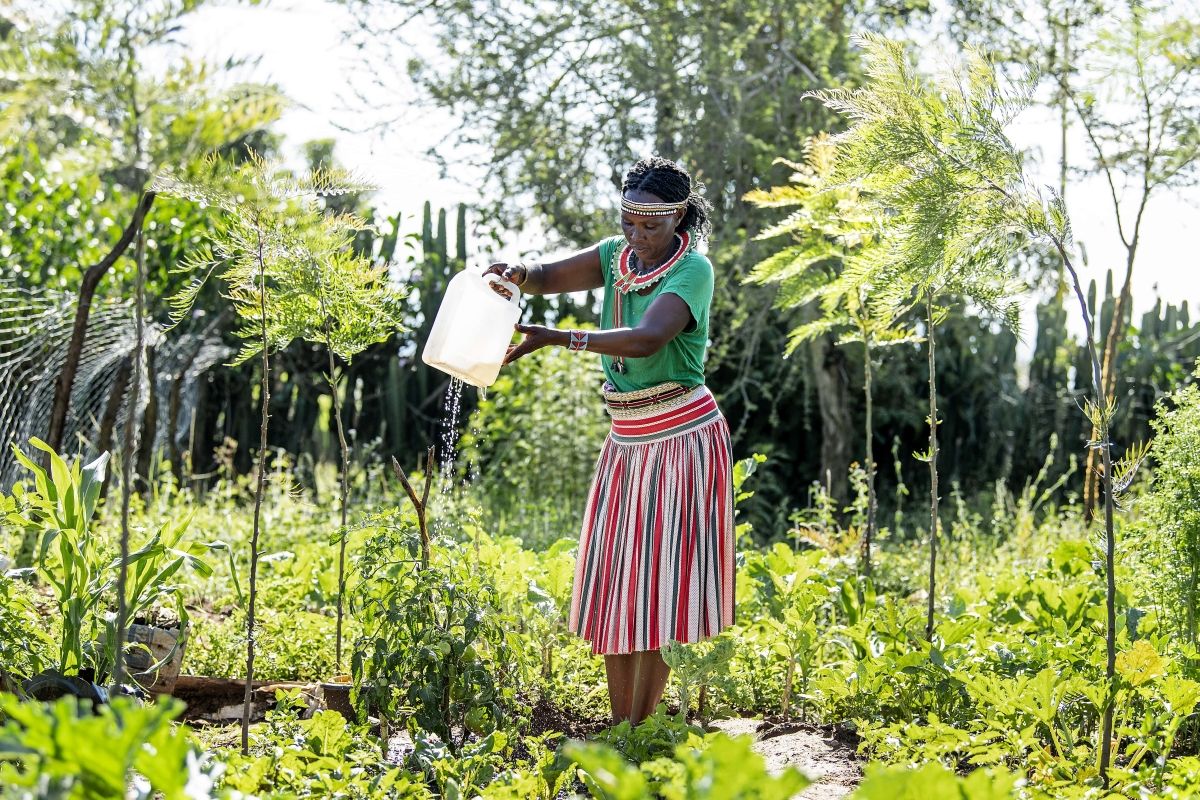Grace and her family no longer go to bed hungry. A climate-friendly vegetable garden provides the family with plenty of crops, enough both to eat and sell on the local market.
In the Kenyan highlands Grace Peto walks around in her vegetable garden watering the plants. In the garden there are spinach, beans, and small fragrant tomatoes. Beneath the soil lies sweet potatoes and cassava, whilst luscious papayas and green mangoes hang from the trees.
Grace Peto is proud of her vegetable garden. She tends to it every day, and she knows when crops are ready for harvest and what seeds to sow next. She never uses chemical fertilizers.
Instead, she uses goat manure mixed with leaves and food scraps, because she has learned that this gives the most nutrient-rich soil and the best results.
The vegetable garden feeds the entire family of eight children, a couple of foster-children, two grand-children and a father-in-law. The surplus vegetables and fruit are sold at the local market providing the family with a small but stable income to spend on the household.

In the past the future was uncertain
But it has not always been like this. For many years the 50-year-old mom and grand-mom struggled to put food on the table, and she often had to send the kids to bed hungry.
Fourteen years ago, Grace Peto’s husband left her after she had just given birth to their eighth child. In Kenya women are not allowed to own land, so Grace was afraid that she would be evicted with the children.
“My father-in-law fought for me, and he made sure, that the children and I could stay on the land, that my husband owned. Today we have official papers showing that my sons own the land, so now no one can evict us” Grace Peto explains.
For many years Grace supported her family by working as a day laborer. Each day she had to seek out local farmers or small factories in the hope that they could use her help. This provided her with a small and very uncertain income. Grace Peto lived in constant fear, that a member of her family would fall ill and need medicine. It would be impossible to pay for the medical care.
See also: Start your very own climate fundraising with DanChurchAid
Climate-resilient vegetable garden
But two years ago, DanChurchAid helped Grace Peto start a new vegetable garden, and this has changed the life of all the family members.
”I was completely exhausted and did not know what to do. But then I received training in how to cultivate a vegetable garden, and now we have food all year round, and even enough to sell,” she says.
Grace Peto explains that the family also had a small vegetable garden before, where they grew maize and cassava. But over the last five years, climate change led to unpredictable weather conditions with longer droughts as well as unexpected and large amounts of rain. This often caused the harvest to fail, and the family starved for long periods of time.
This is no longer the case. Today, Grace have learned how to get the most out of her vegetable garden. In addition to the maize and cassava, she now cultivates different fruits and vegetables to make sure, that the soil is kept fertile.
Grace has also learned about transplanting and saving seeds for the next year, and she makes her own effective fertilizer by mixing goat manure with garden waste.
”Every day, I am grateful for all, that I have. I had never dared to dream, that my family and I could live like this. We no longer go to bed hungry, and I earn enough to also save money, in case we fall ill or something unexpected happens,” she says.
A bright idea
The budding vegetable garden has given Grace more energy to think about and plan for the future. And one day she had a bright idea. She built an oven, which worked both as a traditional stove for cooking, but also as an incubator for chickens. The excess heat from the oven keeps the family’s chickens warm at night, where chickens are at risk of dying from the cold.
Today Grace is breeding lots of chickens, which she also sells at the local market. She shared her knowledge about the chicken-oven with the other women in the village, so now almost all the women have a similar oven.

From the vegetable garden to university
Together with other women in the village Grace Peto has started a savings group. It acts as the women’s own little bank, where they can save money and most importantly borrow money from their collective savings to invest in new tools or in seeds or plants better fit for the new climate.
The women also share new knowledge and experiences with other. Grace Peto says that the group has had a positive impact on the entire village.
“We are much stronger today, than we ever were before. We can send our children to school, and we can give our daughters an education,” she explains with emphasis on ‘daughters’.
Like many other women in the village, she was married off at an early age and she only attended school till she was fourteen years old.
“Today, my two girls are attending university. They are both married, but they chose to be. I am so proud of that,” she says.
Also read: Climate-resilient Seeds Create Suistainable Agriculture

